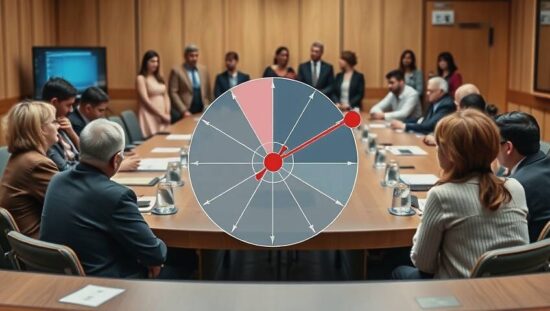A study by the Otto-Brenner-Stiftung has identified deficits in the control committees of public broadcasters. According to the analysis, published on Thursday, the politics has failed to comply with the Federal Constitutional Court’s 2014 ruling, which states that no more than a third of the members of the supervisory bodies should be state-related or state-adjacent. The study found that at least 41 percent of the members of the broadcasting council and 53 percent of the members of the administration council can be linked to a political party.
Journalist Peter Stawowy analyzed the sociodemographic and organizational backgrounds of 772 members of the broadcasting councils and administration councils, who hold mandates in the supervisory bodies of ARD, ZDF, Deutschlandradio and Deutsche Welle, between April and September 2024.
It is argued that the existing regulations to curb the influence of party politics may not be sufficient and a debate is needed on the matter. “It cannot be that former ministers fill the places of civil society organizations and, in the end, the old party politics and the classical power thinking are carried into the committees” Stawowy said.
The study also reveals a lack of transparency in the work of the committees and their exchange with the public. The question of the costs of the committee’s work cannot be answered clearly by outsiders. The available numbers show that the expenses of the broadcasting corporations for the committees vary between around 100,000 euros (Deutsche Welle) and over two million euros (WDR). “Since these funds are financed by license fees, more transparency is urgently needed regarding the use of funds” Stawowy said.





